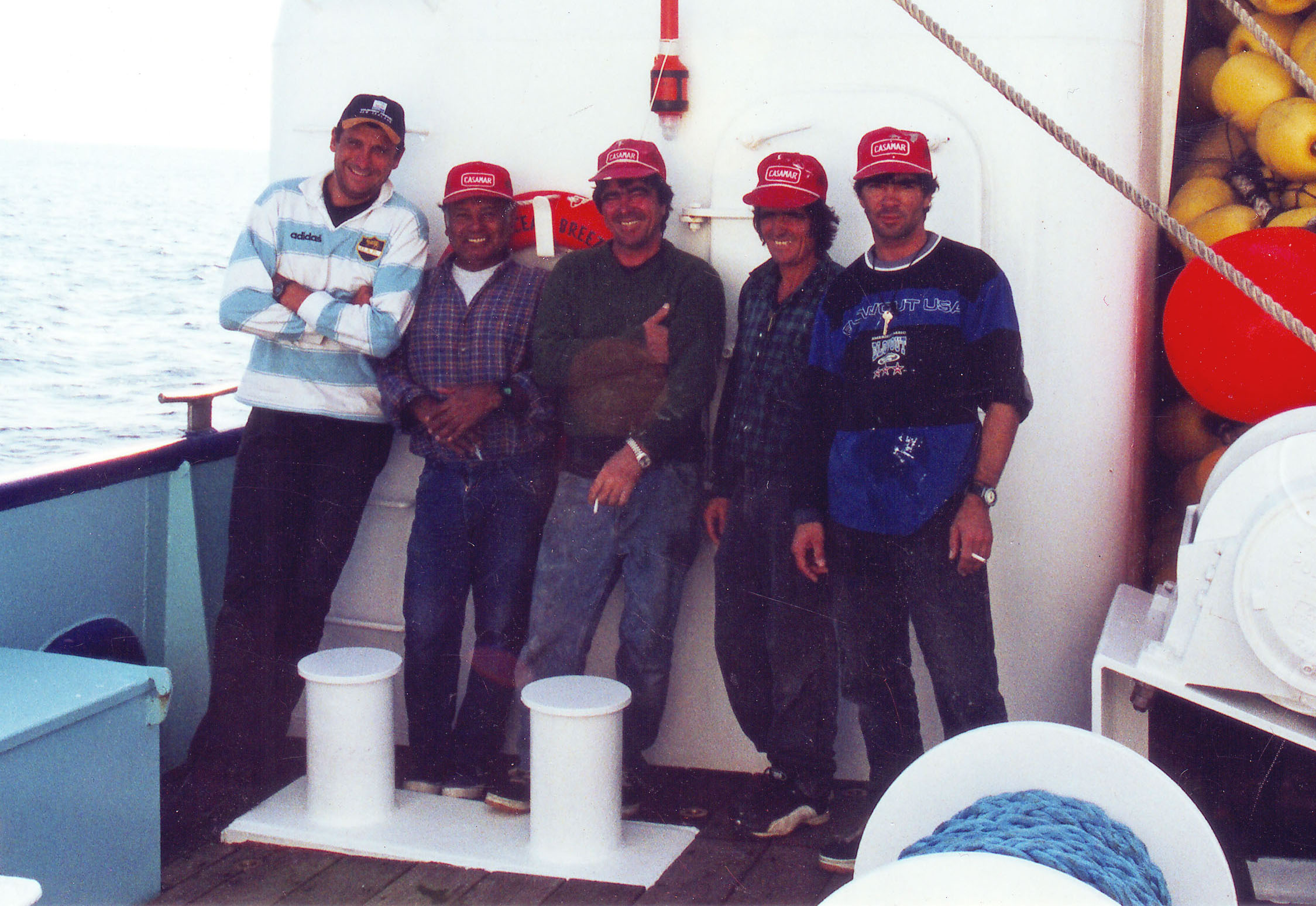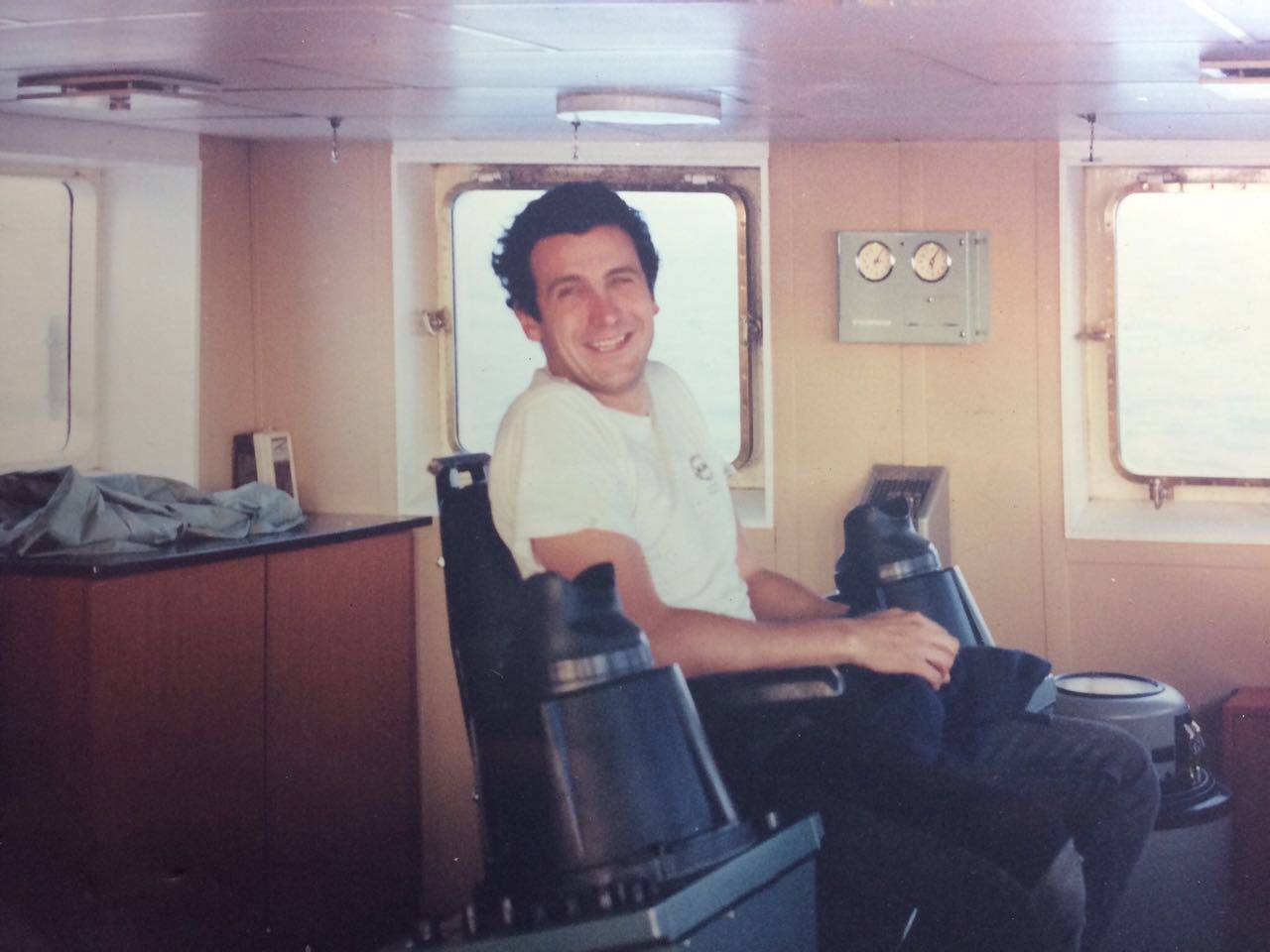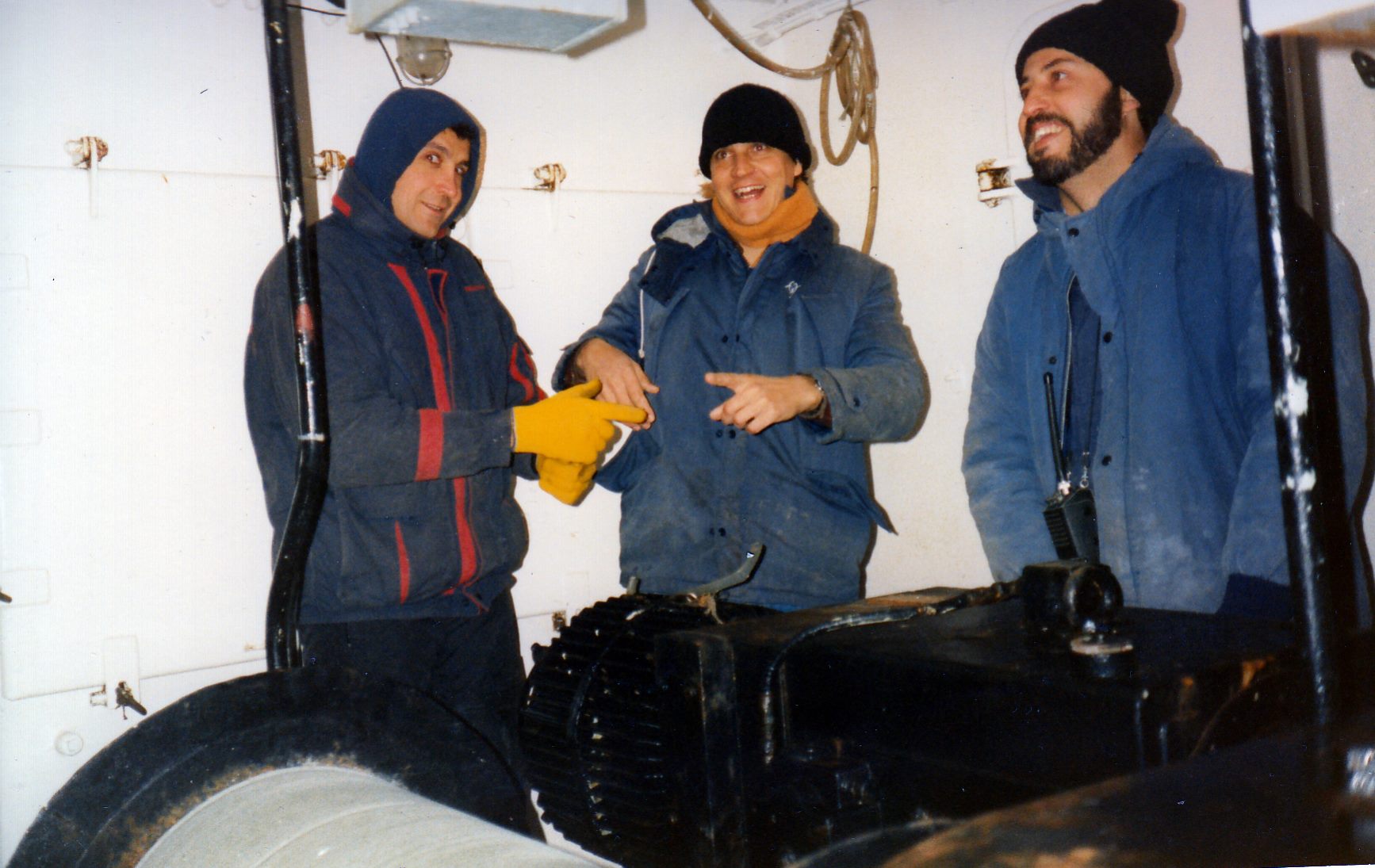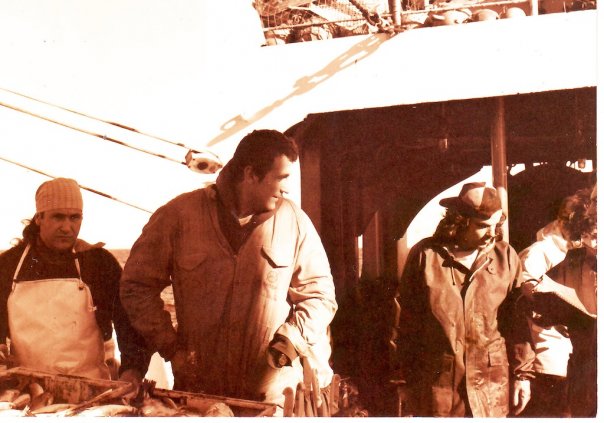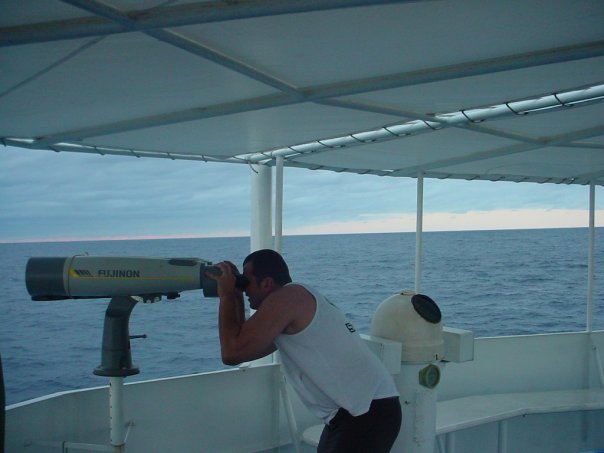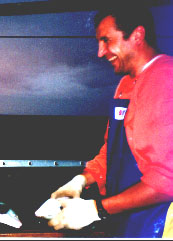The issues of fishers welfare, decent work conditions and forced labour have been at the forefront of the news these days, and for various good reasons. So much so, that FAO is getting involved through the Vigo dialogue (a process I may be involved with), and surely RFMOs will start extending their view over it. As in other complex areas in fisheries, there are already legal frameworks that cover the issues at hand, yet they are incomplete, or just not adhered to.
Over the next few posts, I’m going to dive into the labour conditions issue, as well as the present agreements. As I may get involved more in-depth into the topic, I thought I write about my personal take on this based on my experience. This way I may look back on this post in the future and see if my views changed through the experience of working on this complex yet necessary area.
In my experience, where you stand and what you are used to, makes a big difference in this area. So where is the line that separates what is acceptable from what is not? I cringe a bit at the “developed country saviour” stereotype that I perceive in some initiatives in this area.
Here is an example: Recently I listen to an expose on conditions on board a Taiwanese vessel and people were working 18 hrs (I get back to this later), but also how there where cockroaches in the galley, in principle that should not happen, yet it does constantly… I remember spending time Bulgarian and Russian trawlers during the 80’s (South Atlantic), using mosquito nets in the bunk as to avoid them crawling on your body, and squashing them when you sleep (not a nice feeling when you wake up believe me), and finding them in your clothes, books and cooked in your food and bread made on board. Yes, surely wasn’t nice, but you get used to it, and I still here.
Yet, as the other side of the coin and in a huge contrast, they were the only vessels I been in my life, where 2 or 3 times a week, after dinner a string sextet (a cello, 2 violas and 3 violins) made of crew members (guys from the deck and engineers) will play traditional folk songs and light classics directed by the 2nd mate, with some excellent operatic singing… other nights we played chess or read classics from the captains’ library, he had little cards and would recommend books based on your past choices. The disparity in between the filth we lived in (I never been in any Asian boat as bad in terms of filth at those ones) and what I always perceived as a high civilised culture, was unique… I never forgot that paradox.
Yes, there are conditions, (particular regarding space and general hygiene) that I find difficult to deal with Asian vessels, but I find this also in Asian cities. But then, I’m a 196cm (6’5’) ex-rower and swimmer, that grow up in places with a lot of space… I would not try to impose my view of what is “right”, even if it feels “wrong” to me
Anyway, is also really important to understand that fishing is not like any other job in any other area I’m aware of (yet my experience is only in fisheries, farming, academia and UN bodies) for various reasons (I explain some below), therefore there is no way that "one size fits all" will ever work.
Furthermore, there are massive differences between countries and sometimes between fisheries in the same country.
The first element of everyday reality that you notice disappears when you work on fishing boats (unless you are an officer doing logsheets) is dates and times. They don't really make a lot of sense anymore after a week at sea... if it Tuesday 6.15 am or Sunday 3 pm doesn't really make a difference, so your really forget about that... In Argentina (by some reason) is a tradition to eat pizza on Saturdays... so we will know that a week has gone because there was pizza for dinner.
There are many fisheries where your income is based on a fix "fee" and catch shares that vary by your position. In many boats actually, the captain and chief engineer earn only based on catch shares and not salaries.
Critically, ‘when the fish is there, the fish is there" and that is the only time to catch it. For example: I'm able to think of many occasions where if the captain would have tried to apply ILO’s C188: Work in Fishing Convention; “10 hours of rest per day may be reduced to no less than six consecutive hours during active fish catching and fish processing" I would have been pissed off because that meant less money in my pocket at the end of the trip...
"however the fisher shall receive compensatory periods of rest as soon as practicable." Well, that kind of happens anyway... you spend time looking for fish, and in that time crew work on vessel and gear maintenance, but is not "fishing" also you have shift work on deck, bridge or engine room so the 10 or 6 hr may not be consecutive.
You'll know if someone has been a fisherman by his/her ability to fell asleep at any time or any position under any weather even if it is only for 15' minutes. When I get on a flight in the Pacific with fishing crew... we are the only ones sleeping in 5 minutes of sitting in the plane. Sleeping short but repetitively is just part of what you do.
Fleet wise, that variability of practices is massive, and I merely talk about my experience:
Purse Seiners would set pre-sunrise for FAD sets, but then any time of day for free school sets. Hence the nights usually are resting time (unless you had a big problem on the net, and then is all hands on deck overnight for repairs)
Trawlers will depend on what are they targeting and if they are using bottom or midwater gear... at which latitude you are, etc. I have done 18 hrs days during the summer in the southern seas, and that was given. If you are in a factory vessel, then your work in 6x6hr shifts or 8x6hr... but you get less than 6 hrs sleep literally, because you will like to have some food and a shower, so that will already be out
Longliners tend to set pre-sunrise and sunset, but then sometimes during the day... and depending the number of sets the boat has out you will be hauling the times you are not setting... pretty much 24 hrs... so the ILO rule will not really work... but then you have plenty of time to sleep when you are getting to or off the fishing grounds.
Also as a skipper, at the end of the day not your interest to have an exhausted crew, when people are there is when they make mistakes and get hurt, an injured guy on board is a real problem you need to get back to port, and if crew is with low moral, efficiency goes down, and accidents tends to happen. And even if you were to be the worst possible human being, tired people break stuff as well as getting hurt, broken gear means less fishing, and no one wants that on board.
In principle, a key aspect of the master’s responsibility (that was drill into me both at navy and fishing school) is to look after the safety and welfare of crew and make money for everyone involved. If the crew is exhausted, shit happens, and no one wins, if I see someone on deck not being really into it, I sent him to the bunk... not only because he will get hurt, but mostly because the other crew will get hurt too, and as I said, stuff will break.
How can you control this issues on board?
Well... you could have logs (like truck drivers) and add that to the already huge paper-work already on board. The logical way would be via EM (cameras on board) and have then a labour inspector sitting with the observer scanning the footage (but then that will imply quite a lot of labour inspectors being trained in fishing, and that ain’t gonna happen, labour departments struggle to get enough people as ist is already).
But my biggest issue is that, while I’m all for crew rights due to the well-known cases of slavery and abuses, trying to be too authoritative on hours and days worked, and the having labour inspectors checking is the wrong approach since you are barking at the wrong tree.
Most of the slavery and crew rights abuses seem to take place in vessel flagged in countries that don’t really give a shit about any rules, much less those that will apply to the 10 countries that have signed the ILO convention... and even if they were to sign it, what credibility will they have in controlling it?. I don't think anyone in Taiwan, Vanuatu or China has any idea of where all their vessels are and who is on board... much less how the crew get treated.
So we have to be aware that the weight-of compliance, (as usual) will fall on the countries that are already pretty responsible operators... and that are barely competing with the other countries that don't give a shit.
And while potentially the consumer could reward the responsible states with their choice (the ecolabels semi myth), reality is that the people who care, are the well-intended and conscious middle-class buyers of developed countries… which are not the primary market of most fishery products
Fishing is about flexibility... and if you have to stop fishing because the crew would only be able to sleep 5 hr instead of 6, because otherwise, you'll have to spend time explaining why you took that decision to some bureaucrat that does not know the difference in between stern and bow even less the works of a Purse Seiner, then you're pushing them to hide things... and no one really wins when that happens.
The people that the rules are trying to protect are still being abused and the responsible operators’ countries are getting constrained by rules that do not reflect reality sometimes.
There is limited evidence of abuses in well-regulated fisheries, and the reasons are because there is a system to control them... in the WCPFC area the biggest issue is unreported (specifically underreporting), illegal fishing or unregulated are non-issues.
From my present experience, my feeling is that in the WCPFC PS tuna fishery the key issues would be about fair payment, but not slavery and being kept on board against their will.
For the LongLiners the process gets a bit murkier because we have a lot of vessels that fish in the High seas and do not come to port or have coastal state licenses... so you must trust the flag-state conditions. But then while China and Korea are ILO members, they are not 188 signatories - and mostly employ other countries crew (Indonesia, Vietnam, Myanmar, Philippines, etc). Taiwan is not even member of ILO, nor is Vanuatu that has hundreds of Chinese and Taiwanese owned vessels under its legislation!
Japan tho, is interesting since because of its labour unions, does employ a lot of Japanese crew, at Japanese salaries, and still (allegedly) makes money.
What I would do?
As in any other fisheries compliance are, explore incentives for people to do the right thing, instead of only having a system to punish them when found doing the wrong thing. But that will take time (but i’m working on it)
In the meantime, as an ex-fisher I can think about 4 initial ideas:
Actually trust fisherman to know what is better for them and create the avenues for them to be able to log complains if they feel they have been abused, not paid, or made work in conditions beyond reasonable.
Provide independent avenues for crew to have the opportunity to complain and take action via arrangement with flag, coastal or port states... one idea... have 3 randomly selected crew members to come with their passports to the ILO rep office/labour dept/fishers union or similar at the key ports in the Pacific (60% of the skipjack in the world comes from there)
Pull the pressure on the crewing agencies and crewing related legislation in the countries of origins of the crew - not just flag states.
Since a lot of the reported abuses seems to happen in the HS Long Line fishery, we need to increase the pressure to stop at sea transhipments (as we did with PS), hence they have the chance to disembark if needed.
I’m sure many will disagree with my take or find my take a bit strange, but then, that is what happens when you talk about your views… and I (even as a consultant) never take any paternalistic (listen to me, I know better!) attitude towards anything in regards fisheries.0, this is just what I know, think and see.
Any solutions in the labour arena will have to come from a consensus view of all the elements that pay into the topic, and not only from a well-intended side of it. I'm just getting into this topic, and I'm entirely open to change my views be understanding more and be proven in a different light.
So far the best take in this topic I have seen comes from this paper I blogged about recently:
We need to shift the basis of screening from attempting to prove or to disprove forced labour conditions in supply chains toward establishing system fundamentals for human rights due diligence.
Images from past days, and yes it was a different time, unions existed, and I was able to use my earnings to study, and not just to survive or maintain a family.
